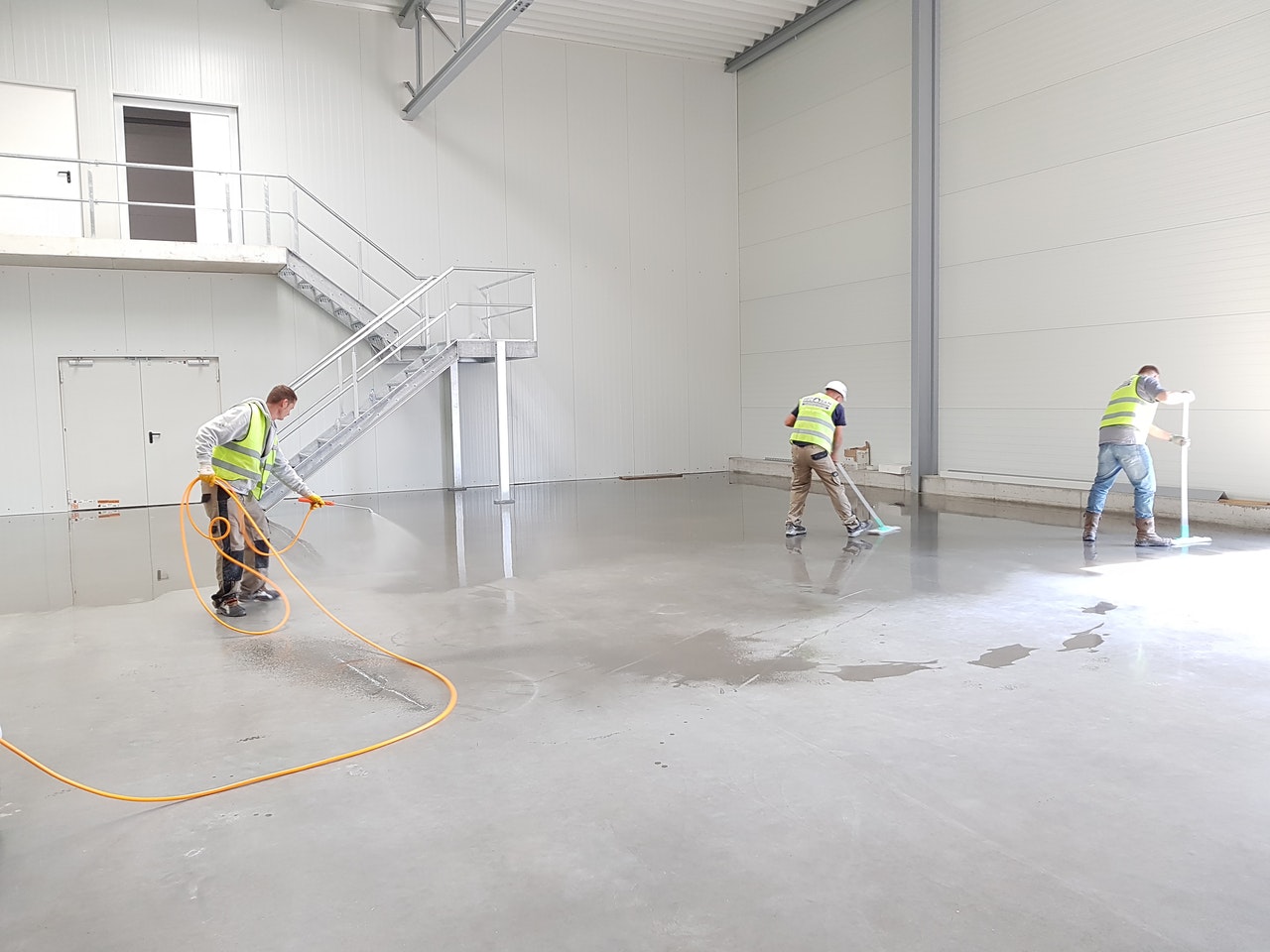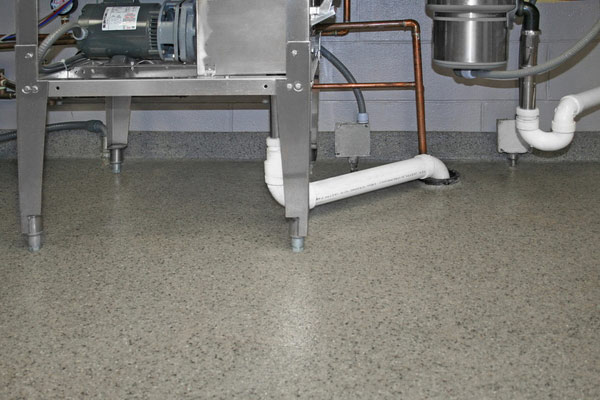We speak to many facility managers who find it difficult to decide between polished concrete flooring and an epoxy floor system.
At first glance, it may seem as though there is little to distinguish them—both can be installed over an existing concrete substrate, and aesthetically, polished concrete and epoxy flooring both look great.
So what are the considerations when choosing a flooring system for your facility? Read on to discover more
Resistance to chemicals and fats
If the floor will not be exposed to harsh detergents, chemicals, or extreme temperatures, a polished concrete floor can provide a satisfactory solution for light use. Polished concrete is a better choice than bare concrete, which produces dust and can reduce air quality.
However, if your facility requires a flooring system that can stand up to the rigors of grease, oil, most acids and alkalis, bodily fluids, or harsh detergents, then an epoxy flooring system offers increased chemical resistance.
In contrast, a polished concrete floor cannot withstand repeated exposure to such substances and can absorb these toxins and affect the surrounding environment.

Floor maintenance
One of the most important considerations for any facility manager is the ease of floor maintenance. A labor-intensive flooring system puts additional strain on janitorial staff, who are already working hard to keep facilities clean as we battle the global pandemic.
Epoxy flooring is easy to clean and maintain using only detergent and water. Dirt can be easily removed because the floor is nonporous, leaving it squeaky clean. There is no need to scrub, polish, or buff a resin floor, which means your facility staff can use their time more efficiently.
Polished concrete floors are harder to maintain, as they require frequent repolishing to keep them looking good. This takes time, and for facilities that operate for 24 hours a day, closing off areas to perform floor maintenance may not be an option.

Installation of water-resistant flooring
Polishing a concrete floor can help smooth existing concrete floors. However, this may not be a viable option for pitted or cracked floors and is best suited for freshly laid concrete.
Everlast® Epoxy flooring is troweled directly onto a surface. The thick resin forms a physical bond with the substrate, covering cracks and pitted areas for a self-containing seamless finish.
Concrete floors are also susceptible to damage, especially in damp environments like commercial kitchens, washrooms, and swimming pools. Vapor transmission (when moisture within the concrete rises) can occur, causing structural issues as the concrete bubbles.
The seamless finish of epoxy flooring means that water ingression will not be an issue, and because it can bond to drains, conduits, and plumbing pipes, moisture cannot penetrate the floor and cause damage.
A sanitary, safe flooring systems
Everlast® Epoxy flooring contains an integral EPA-registered antimicrobial component that impedes the growth of microorganisms. This protects the floor from a broad spectrum of bacteria, actinomycetes, and mildew, and it repels objectionable odors.
The porous nature of concrete allows it to retain moisture, which provides ideal conditions for microbes to grow and multiply
There is an increased demand for cleaner and safer working environments, especially in
laboratories, medical facilities, and food processing plants, which makes epoxy flooring the better choice to prohibit the spread of bacteria.

Good-looking flooring solutions that last
Epoxy flooring and polished concrete are both available in a range of attractive colors. Both provide impressive light reflectivity, which can help lower costs associated with lighting, so aesthetically, there may be little difference between them.
While beauty may only be skin deep, the high-quality resins used in Everlast® Epoxy are 160 mm deep and can stand up to constant use and heavy foot traffic for years and still look as good as new.

Fast installation = minimum downtime
The prospect of replacing a floor can be daunting. More likely than not, your facility will have to close while the new flooring is laid, disrupting your business.
Epoxy resin flooring makes installation of a new floor fast and easy. Installation requires minimal groundwork because the resin can be laid over most surfaces. The floor can be walked on after only 24 hours—unlike a polished concrete floor, which will need 3–5 days to cure—and should not be exposed to heavy traffic (such as forklift trucks) for 28 days. For a fast installation, choose Everlast® Epoxy.
If you are thinking about investing in a new floor, an epoxy flooring system will win out every time. Visit our website or contact us today for free samples and a no-obligation quotation.
